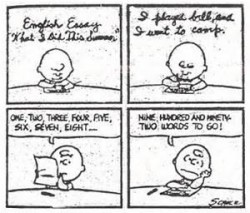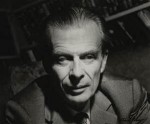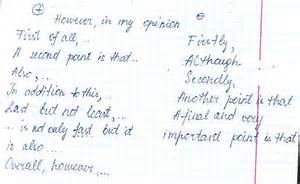You know I ramble about contests. You know I like them – so much that if I’m not entering, I’m judging. And, as a judge, I’ve noted on more than one occasion that there seems to be some confusion on the difference between an essay and a short story. Other judges have confirmed this problem.
So, gather ’round and we’ll try to make a little sense of it.
First of all – an essay does NOT have a plot. There is no story. No big problem to solve or adventure to experience. No falling in love, killing somebody, or discovering the murderer. There are no heroes or villains, unless maybe you count the political figure the essay may be criticizing. There is no rising action, climax or denouement.
 Aldous Huxley defines an essay as “a literary device for saying almost everything about almost anything.” A personal essay is an opinion, reflection or observation. An objective essay is themed on literary, scientific, or political debate, and uses gathered data – almost as if giving a report. An abstract essay involves the ‘what if’ factor, using speculative thought and abstractions (yeah – that one sounds kind of pretentious, doesn’t it?). They usually have a conclusion, point or moral.
Aldous Huxley defines an essay as “a literary device for saying almost everything about almost anything.” A personal essay is an opinion, reflection or observation. An objective essay is themed on literary, scientific, or political debate, and uses gathered data – almost as if giving a report. An abstract essay involves the ‘what if’ factor, using speculative thought and abstractions (yeah – that one sounds kind of pretentious, doesn’t it?). They usually have a conclusion, point or moral.
Whew! Don’t worry. Most of us write objective essays because, well, we are more in tune with our own thoughts and beliefs and discoveries. There are many styles of essays, but I’m leaving that for a different blog.
An essay is usually non-fiction. In fact some authors declare that it must be. But let me give you this for thought. What if I wrote a descriptive essay about the  Cheshire cat as if I were Alice? It would be true enough – that’s what the cat looked like – but it might not be the way I, personally, would have considered him. It’s the way the character of Alice would think.
Cheshire cat as if I were Alice? It would be true enough – that’s what the cat looked like – but it might not be the way I, personally, would have considered him. It’s the way the character of Alice would think.
It’s still an essay. About a fictional thing. Observed by a fictional character. So – fiction, or non-fiction?
Right now consider this. Most writers start an essay with a statement of its purpose, or by asking a question – such as “do you know the difference between an essay and a short story?” There. You have established the subject of your piece. Now start ticking off the differences, or the specifics of one of those things. You might throw out a few questions that you still have, hoping that one of your readers will consider the same question. You might tell that you wrote something thinking it was one and was surprised to find, when you finished, that it was actually the other…and how you came to that conclusion. In the end, re-establish the question, and give an answer (and yes, you can say “I don’t know” – if you’ve given your reader several things to consider - and let them choose their own interpretation).
See? Dull? Maybe – but if you spiced it up with your personality, your reader discovered it right along with you and understood the journey. And THAT will be a good essay, because it made its point.
Oops! I’m out of room! Next week I’ll talk about why the short story is NOT an essay.






I admit I’ve been confused by this before. Thanks! And I agree with what Dorothy said.
I really liked this blog. I have just finished a piece of free writing that I wasn’t sure about…I think I can call it an essay. Thanks much!
Aw, shucks, DJ. Thanks!
You are a natural=born teacher. You may not see yourself that way because you aren’t a classroom teacher, but you are a teacher. You would have made a good one of those too.